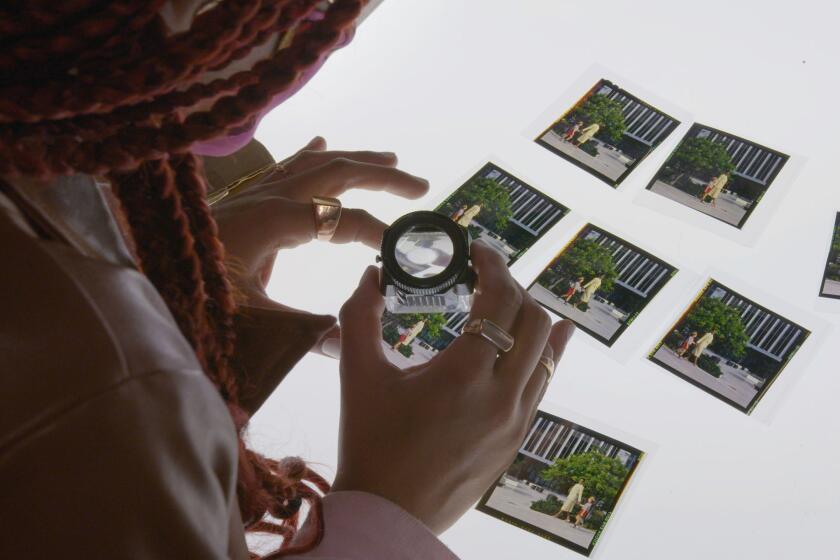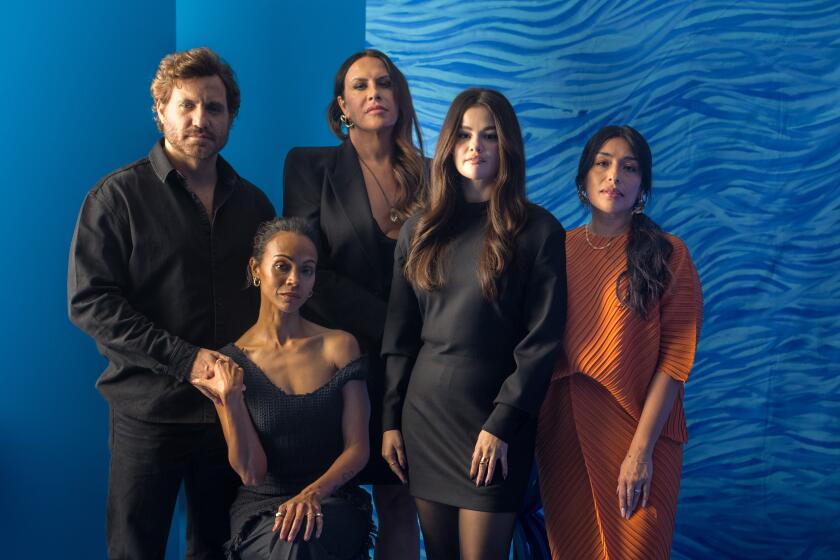Fetch 12,000 lattes, and whaddya get?
IN THE MYTHOLOGY of the American work ethic, the story we most love to tell is how we paid our dues. Businessmen and politicians reminisce about their humble beginnings as busboys. Actors go on talk shows and tell the world they once lived in their cars. Journalists like to brag about their days as malaria-ravaged stringers in the Third World or about going undercover as meatpackers to write the prize-winning expose that landed them a cushy gig at Esquire.
But the dirty secret of a lot of our success stories isn’t that we were brave or frugal, it’s that we withstood a lot of abuse.
Take “The Devil Wears Prada,” the new movie based on the bestselling roman a clef about a young editorial assistant and her sadistically mercurial boss. The magazine in question is called Runway, and the woman at the helm is named Miranda Priestly, but it’s universally understood that these are pseudonyms for Vogue and its legendary editor, Anna Wintour. Played by Meryl Streep, Priestly/Wintour has instituted a kind of trickle-down tyranny. She persecutes the senior assistant, who in turn persecutes the junior assistant, a fresh-faced (at least at first) aspiring reporter named Andrea “Andy” Sachs, who is under the impression that the road to an important journalism career is paved with outrageous demands, bilious insults and, despite being a waifish size 6, constant reminders that she is fat.
This movie is not supposed to be a social commentary -- the posters don’t exactly bill it as “ ‘Norma Rae’ for the Jimmy Choo set” -- but as someone who paid her dues in a similar setting, I can’t help but see it as more than a piece of entertainment.
When I was 22 and fresh faced (mostly because I didn’t know how to put on makeup), I took an assistant’s job at a beauty and fashion magazine in New York. Like “Prada’s” Andy, who doesn’t know how to spell “Gabbana,” I pronounced “Versace” like “Versayce” and thought that, by virtue of my pretentious literary ambitions and god-awful second-hand clothes (I insisted they were “vintage”), I would soon be on to loftier things. My boss was no Miranda Priestly -- when she screamed at me, it was usually because she’d just been screamed at by someone else -- but she did make me cry at least once a week.
The evil boss/earnest assistant dichotomy is a staple narrative of female working life. Chick-lit novels, Hollywood movies and television sitcoms use it not only for comic relief but as a cautionary tale from the front lines of feminine professional ambition.
Vile female bosses, feared and envied by their minions (back in school, we thought the word was “colleague”), are presented not as inspirational figures but as stilettoed agents of the dark side. We’re almost always told their success comes at great personal cost. Husbands will leave, children will be raised by nannies and, worst of all, the qualities most associated with womanhood -- empathy, compassion, placing value on relationships -- will be squelched by the soul-stripping demands of image maintenance and balance sheets.
I’d like to say this is a fairy tale, another example of reductive and insulting media portrayals of ambitious women. But although not all successful women’s husbands divorce them, there’s something about the way women’s brains work -- like bats, we send signals to each other on a frequency men simply cannot hear -- that can turn female-dominated workplaces into psychological war zones. This seems especially true in publishing, where fashion magazines have long been considered the gateway to literary careers.
Sylvia Plath worked at Mademoiselle, Joan Didion edited for Vogue, and I have countless peers who are now formidable reporters, editors and novelists who paid their dues by withstanding tongue lashings and shrill commentaries about their wardrobes (which, incidentally, took up time that could have been spent putting out a magazine). Men certainly experience their own versions of corporate tyranny. And, of course, there are still male bosses who exploit, harass and undermine female employees. But I’ve always found it curious -- and painfully sad -- that women who supervise other women are so often willing to take all the “progress” of feminism and fling it at their assistants as if it were a Chanel coat they couldn’t be bothered to hang up.
Getting ahead in business (particularly those less-than-absolutely-necessary businesses that don’t involve saving lives, educating our youth or collecting our trash) often requires a hazing ritual that can permanently alter our own humanity. As “Prada” suggests -- and as I observed firsthand -- we endure professional abuse with the idea that it’s temporary, that it will pay off, that we can eventually escape -- powerful connections and references in hand -- and get on with the serious work we were told we couldn’t do until we fetched roughly 12,000 lattes.
But not all dues-paying is created equal. Yes, many of us are eventually rewarded for enduring professional abuse. But, guess what? Quite often the prize isn’t the keys to a glorious future but license to become abusers ourselves. Inside almost every Miranda Priestly (except maybe Wintour herself) is an Andy Sachs who remembers her boss telling her she’s incompetent and fat. No wonder fashion magazines make us feel so great about ourselves.
More to Read
Only good movies
Get the Indie Focus newsletter, Mark Olsen's weekly guide to the world of cinema.
You may occasionally receive promotional content from the Los Angeles Times.











